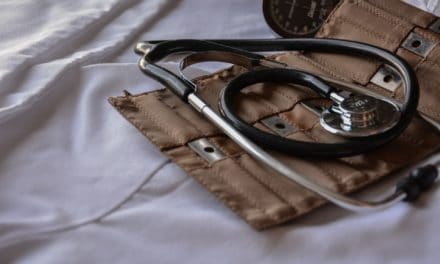[ad_1]
With the development of medical technology and the adoption of healthier lifestyles, the average life span of human beings is increasing, which means that the number of elderly people as a percentage of the total population is also increasing.
- An aging society is a society in which more than 7% of the population is aged 65 or older.
- An aged society is one in which more than 14% of the peoples are over 65, and
- In a super-aging society more than 20% or the population are elderly.
Our world is aging quickly
It took approximately 110 years for the number of people over the age of 65 years in France to increase from 7% to 14% of the total population. The same process took approximately 80 years in Sweden, about 50 years in the United Kingdom, and 20 years or so in Brazil and Korea.
So what does this imply for those of us who are already over 65 years of age?
As aging progresses, the body and mind weakens and diseases accumulate. Chronic illnesses, muscular weakness, and deterioration of the mind are more common in older people.
Unsurprisingly, the elderly account for a greater portion of the total medical expenditure of whatever society they are living in.
In 2015, for example, the percentage of people aged 65 or older in South Korea was 13.2% but their medical expenses accounted for a disproportionate 36.5% of that country's total expenditure on healthcare.
Thus you should pressurise your government to ensure that healthcare systems are tailored to the needs of the elderly.
Studies in Europe and North American suggest that elderly people suffer from four to five diseases on average, much more than the young who are usually fairly disease-free.
Older people suffer medical events, such as heart attacks, strokes and cancers, more often because their lungs, and cardiovascular and digestive systems degenerate along with their immune systems.
Poor diets also contribute to this loss of good health among the elderly. Thus, you should make sure you eat nutritious food to preserve your health as you get older.
The classification of old ages
Until recently, most studies of elderly people has classified people over 65 years into one group.
As people live longer, scientists discovered that diseases vary according to how long people survive after 65. As a result researchers now divide old age into three distinct periods:
- 65 to 74 years… youngest-old
- 75 to 84 years… middle-old
- over 85 years… oldest-old
So what are the differences in terms of health and wellbeing between the three age groups?
—
Osteoporosis
Osteoporosis is a disease in which your bones become brittle and weak. They tend to break if you have a fall or bad bump. The most common fractures due to osteoporosis are those of the hip, back and wrist.
Osteoporosis is more likely to develop as you age. This can be seen in the increased rate of hospital admissions for orthopaedic surgery among the elderly.
Tests carried out by researchers in Australia found age-related osteoporosis in 20% of patients aged in their 50s, 46% of those in their 60s, 59% of patients in their 70s, and 69% of patients aged over 80 years. If you are in the oldest-old group, you are very likely to have osteoporosis.
Thus, once you are over 65 years, you should be tested for osteoporosis regularly. There are plenty of treatments you can follow to prevent your osteoporosis getting worse.
Falling
Falling among the elderly is quite common. One of the main causes of falling is syncope, ie fainting or passing out due to a temporary drop in the amount of blood flowing to your brain.
You can experience syncope if you have an irregular heartbeat, reduced blood flow to the heart, abnormally low blood sugar levels, are using blood pressure medications or other underlying diseases.
Falls can also be caused by failing vision, drunkenness and sleeping pills, as well as paralysis caused by stroke or neuromuscular disease (which affects the muscles and the nerves that control them).
Sudden falls can have severe consequences, especially if you bang your head or fall on your wrist.
Once you are over 65, you should adjust your living spaces so that slips and falls are less likely and have less severe consequences should they do occur.
In addition, you should wear an emergency call button, especially if you live alone, linked to a monitoring service who can alert your key holder or the emergency services.
Lung function
With age, lung function decreases as the elasticity of the lungs and the tendency of the chest to return to its relaxed position decreases. This causes the respiratory muscles to stiffen.
This explains why respiratory diseases are more likely to occur in elderly patients. Indeed, hospital admissions for respiratory problems make up the largest proportion of admissions for internal diseases.
It's obvious that elderly patients should be provided with respiratory equipment and training in lung exercises to increase lung capacity and improve breathing.
To strengthen your lung muscles, you should obtain a breathing device, as used by athletes and musicians, which resists your breathing and develops the four muscles of your lungs. Use it every day and after a few weeks you'll discover that your breathing will be much improved.
You should also give up smoking.
—–
Hospital admissions
There are absolute differences in hospital admissions between the three groups of elderly.
Together, all three groups account for the largest number of hospitalizations due to internal diseases, but about two-thirds of these are old-old patients.
This is because as you get older your immune system degenerates and you become more susceptible to infectious diseases, cancers, and autoimmune diseases.
Thus, hospitals and hospital admission systems need to be tailored to the needs of the elderly who are the most frequent users of these services.
Use of ambulances
Elderly patients use emergency ambulances more often than younger patients.
Studies indicate that in most developed countries more than one-third of elderly patients, and about half of patients older than 85 years, use ambulances to get to an emergency department (ED).
By contrast, emergency ambulances are only used for less than 30% of children going to EDs.
Thus, ambulances need to be equipped so that they fit the needs of elderly patients.
Length of stay (LOS) in EDs
0ne recent study found that elderly patients remain in the ED approximately 20% longer than younger patients with the same complaint.
Several other studies show that LOS in the ED increases with increased age. This may be because elderly patients in the ED are at high risk for associated diseases. They also may need more diagnostic testing and emergency treatments, as well as time-consuming consultations with various departments.
Other studies report that increased LOS among elderly patients is mostly due to wait times for admission to hospital.
Governments need to develop an effective policy for managing ED over-crowding and LOS.
Time in ICU
Another study reveals that there are no differences in the rate of admission to ICUs between the three groups of elderly, but there is a difference in the length of their stay in ICUs between the youngest-old and oldest-old.
This might be because youngest-old patients respond better to treatment than patients who are oldest-old.
Women
With increased age, the proportion of female patients increases. This is probably due to the fact that women live longer than men.
The rate of ED visits for female patients increases with age.
Several studies have shown that women in Europe represent 51% of patients aged 70 to 79 years and 61.68% of those over 80 years of age in EDs. In a study in South Korea, women accounted for 55.4% of all elderly patients, ie 51.5% of the youngest-old, 54.9% of the middle-old, and 69.1% of the oldest-old.
Therefore, both government health policies and hospital managers should consider expanding the number of female wards and specialized medical services for women.
—
The takeaway
- Eat nutritious food to preserve your health as you get older.
- Get tested regularly for osteoporosis and, if you have it, follow whatever treatments your doctor prescribes to stop it getting worse
- Adjust your living spaces so that slips and falls are less likely and have less severe consequences should they occur.
- Wear an emergency “panic” button linked to a monitoring service that will alert your keyholders or the emergency services in case you fall or have an accident.
- Exercise your lungs every day with a Powerlung or other similar device to preserve lung function.
-
Form a pressure group with you older neighbours to encourage your political representatives, TDs, MPs, Senators etc to ensure your government acts:
- to tailor its healthcare systems to the needs of the elderly who use these services much more than other age groups.
- to equip ambulances so that the fit the needs of elderly patients.
- to develop an effective policy for managing overcrowding and lengths of stay in emergency departments.
- to consider, along with hospital managers, expanding the number of female wards and specialized medical services for elderly women.
Remember… nothing will happen unless you shout loud and vote during elections
[ad_2]
Source by Paul D Kennedy






